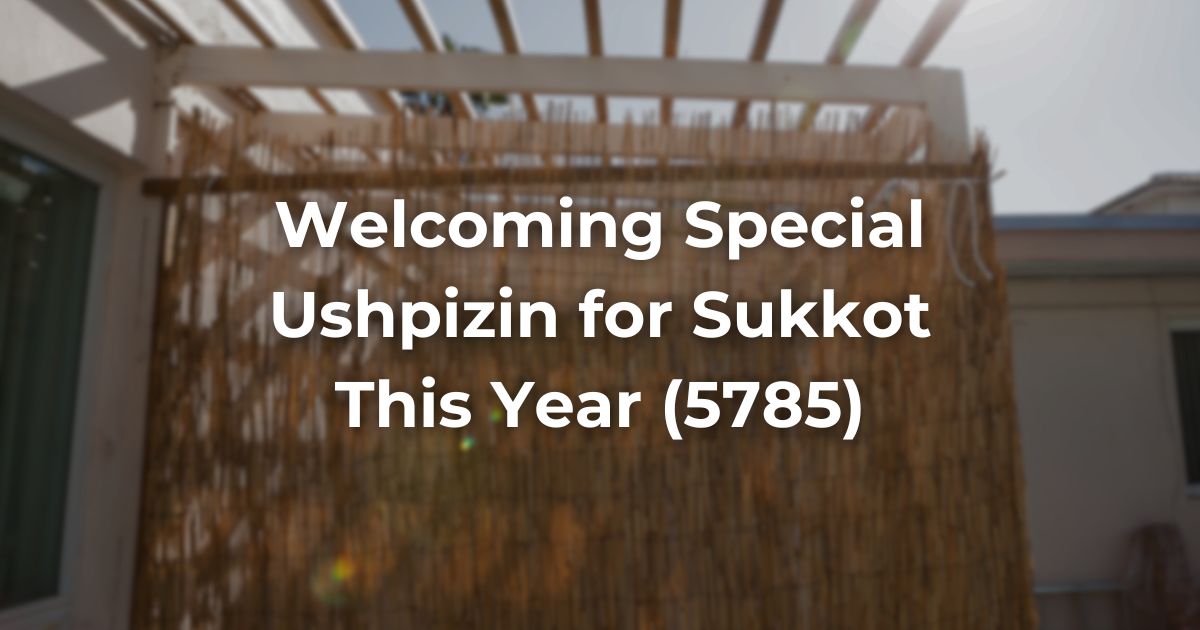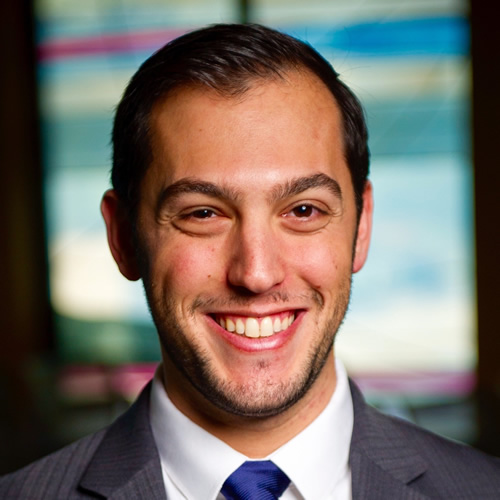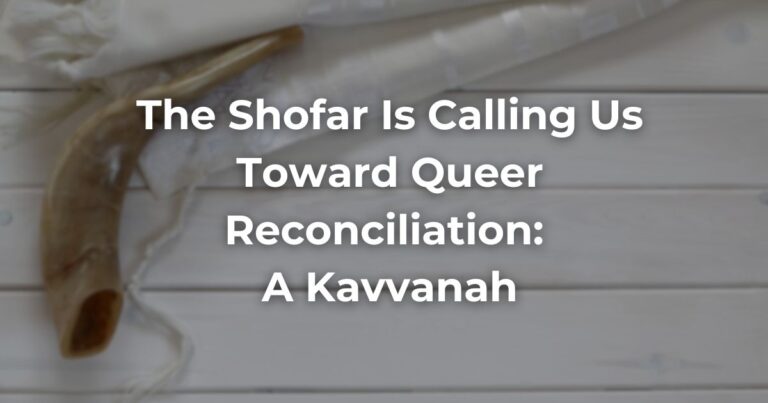This piece is part of Exploring Judaism’s 5785 High Holiday Reader. Download the whole reader here.
In our tradition, the fragile roof of the Sukkah symbolizes the Divine Presence, the ShekhinahLiterally translated as “Presence,” while rabbinically, it is a term referring to God’s presence in the world. Its feminine form gave rise to the mystical expression of God’s feminine attributes. Read more, resting upon us and protecting us, as it did our ancestors during the desert flight from Egypt. Jewish mystics understood that the presence of the Shekhinah, increases with each passing day of Sukkot and sought to associate each of the 7 (or 8) days of the Festival with biblical heroes who were influenced by and engaged with the Presence. Using the TanakhAn acronym for the name of the Hebrew Bible: Torah, Neviim, and Ketuvim. Read more as a source, they created a framework for inviting the Presence, accompanied by our ancestors, into our small holy space.
Each day, a different ancestor is invited into the Sukkah, bringing the symbols and values they represent into our holy temporary homes. They are called Ushpizin Ilayin – Exalted Guests. Their presence becomes a hope, a dream we can hold onto throughout the year.
A great challenge of this year’s holiday is the nagging sense of grief and incompletion that war has brought into our times of joy. As we invite the Shekhinah in each night, we are also moving toward the day when the war began, the final day of Sukkot in the Diaspora when Jews around the globe continued to celebrate Shemini Atzeret and Simchat TorahRefers to the first five books of the Hebrew Bible, the Tanakh, also called the Five Books of Moses, Pentateuch or the Hebrew equivalent, Humash. This is also called the Written Torah. The term may also refer to teachings that expound on Jewish tradition. Read more, the days the rabbis named Zman Simhateinu – Our Time of Joy. This year, as the hearts of the Jewish people feel as fragile as the Sukkah itself, we offer a framework for Sukkot and Ushpizin – our Exalted Sanctified Guests.
At night, upon entering the sukkah prior to reciting Kiddush and associated blessing, we say:
Sit, sit, our exalted guests.
Sit, sit, our holy guests.
Sit, sit, our faithful guests.
We invite you, on this night, to join us, bringing with you all of our holy guests. We invite…
On the first night:
… all those currently hostage and held captive. Kept from their homes and their families.
On the second night:
… all those who lost their lives on October 7th, who we hold dear in our hearts.
On the third night:
… all those who bravely stepped forward as first responders, bringing hope and healing along their path.
On the fourth night:
… all those soldiers who have stepped up to fight for justice, to bring home our beloveds.
On the fifth night:
… all those who have provided aid, supporting the suffering, bringing care at each step.
On the sixth night:
… all the children whose lives have been interrupted, whose schools and families are far from the normalcy children deserve.
On the seventh night:
… all the innocent, caught amidst violence they do not deserve nor desire.
Conclude each night with:
…we invite you here with us, under our sukkat shalom, a shelter of peace.
Author
-

Rabbi Jeremy Markiz is a teacher and consultant. Based in the Washington, DC area, he teaches the Torah of personal growth, meaning and intentionality, and making the world a better place. He writes a newsletter called, With Torah and Love. Rabbi Markiz helps clergy, congregations, and Jewish organizations grow and communicate clearly in the digital world, develop effective strategies, and solve problems with his consulting firm, Next Level Rabbinics.
View all posts






